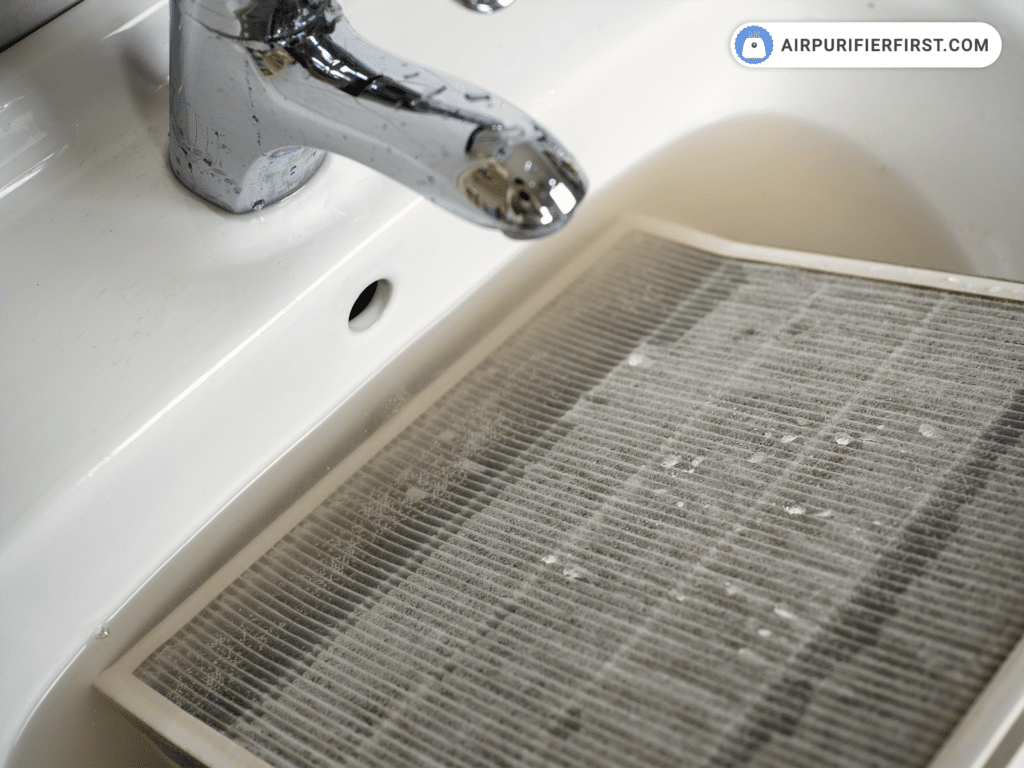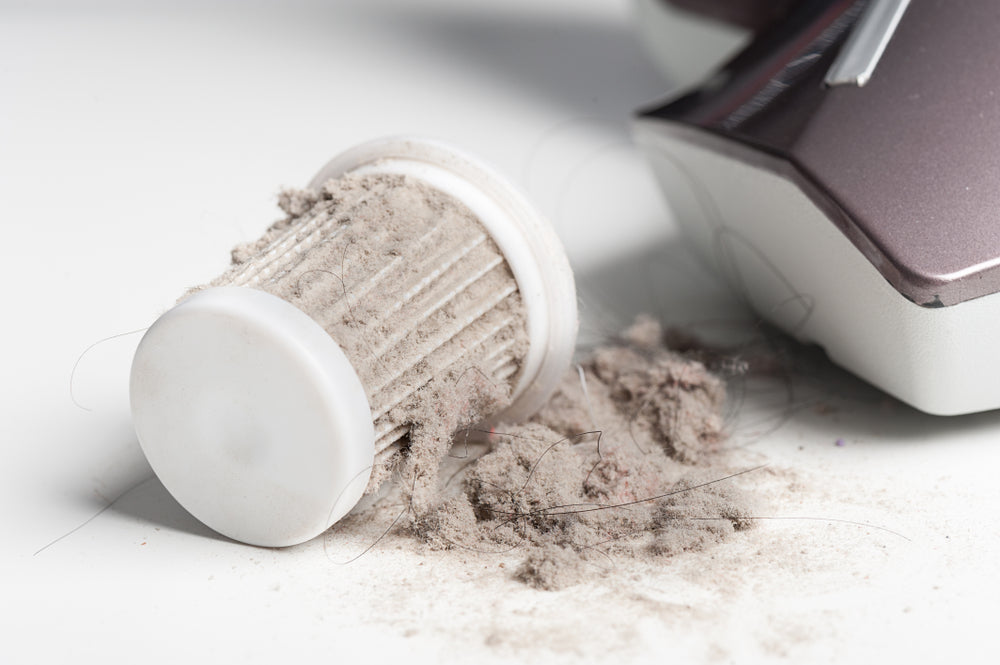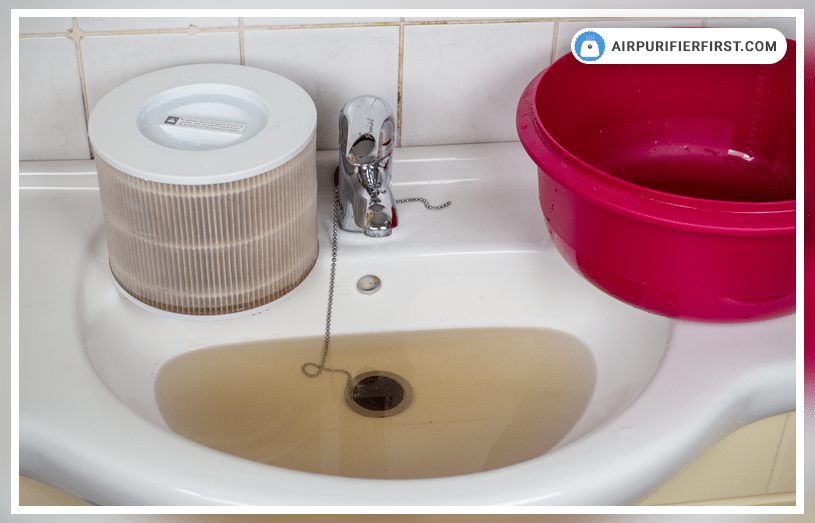Yes, you can wash and reuse some HEPA filters. Not all HEPA filters are washable, though.
HEPA filters are known for their efficiency in trapping tiny particles. They are widely used in air purifiers, vacuum cleaners, and HVAC systems. The question often arises: can you wash and reuse HEPA filters? The answer depends on the type of HEPA filter you have.
Some are designed to be washable, while others are not. Washing a non-washable HEPA filter can damage it and reduce its effectiveness. Understanding the difference is crucial for maintaining good air quality and extending the life of your filter. In this blog post, we will explore the types of HEPA filters and provide tips on how to care for them properly.
Hepa Filters Explained
HEPA filters are essential for clean air in homes and workplaces. They are known for trapping small particles, which many other filters miss. Understanding how they work can help you decide if they are right for your needs.
What Are Hepa Filters?
HEPA stands for High-Efficiency Particulate Air. These filters capture 99.97% of particles that are 0.3 microns in diameter. This includes dust, pollen, mold spores, and even some bacteria and viruses.
HEPA filters are made of a mat of randomly arranged fibers. The fibers are typically composed of fiberglass. The effectiveness of the filter is due to the diameter of the fibers and the thickness of the filter.
Common Uses
HEPA filters are used in various settings to improve air quality.
- Homes: Used in vacuum cleaners, air purifiers, and HVAC systems.
- Hospitals: Essential in operating rooms and patient areas to reduce airborne contaminants.
- Laboratories: Important for maintaining a sterile environment.
- Airplanes: Ensure clean air for passengers and crew.
HEPA filters play a critical role in maintaining a healthy environment. They are effective in capturing small, harmful particles. Whether in homes or hospitals, they help keep the air clean and safe.
Importance Of Hepa Filters
HEPA filters are essential in maintaining clean air within homes and workplaces. They trap tiny particles that can cause health issues. Their ability to capture over 99.97% of particles makes them a critical component in air purification systems.
Health Benefits
HEPA filters significantly improve indoor air quality. They remove allergens such as dust, pollen, and pet dander. This is particularly beneficial for those with allergies or asthma. Clean air helps reduce the risk of respiratory issues.
By filtering out pollutants and bacteria, HEPA filters also lower the chances of infections. They are effective in preventing the spread of airborne diseases. Cleaner air contributes to better overall health and well-being.
Environmental Impact
Using HEPA filters can have a positive impact on the environment. These filters reduce the amount of harmful particles released into the air. This helps in lowering pollution levels. Cleaner air is beneficial for both the environment and public health.
Reusing and properly maintaining HEPA filters can also reduce waste. Instead of frequently replacing them, proper care can extend their lifespan. This minimizes the number of filters that end up in landfills. It is a small step towards more sustainable living.
Can Hepa Filters Be Washed?
HEPA filters are highly effective at trapping small particles. But can you wash and reuse them? This is a common question. The answer depends on several factors. Let’s delve into these aspects to understand better.
Manufacturer Guidelines
Each HEPA filter comes with specific instructions. Manufacturer guidelines are crucial. They determine if a filter is washable or not. Always check the user manual. It provides clear information on maintenance and cleaning.
Most manufacturers specify if a filter is washable. If not, washing can damage the filter. This leads to reduced efficiency. Some brands offer washable HEPA filters. These are designed to withstand water. But, many traditional HEPA filters are not.
Materials Used
HEPA filters are made from various materials. Materials used play a key role in their washability. Common materials include fiberglass and polyester.
| Material | Washable |
|---|---|
| Fiberglass | No |
| Polyester | Yes |
Fiberglass filters are delicate. They do not handle water well. Washing them can break the fibers. This reduces their effectiveness. Polyester filters are more durable. They can be washed and reused. This extends their lifespan.
Always know the material of your HEPA filter. This ensures you handle it correctly. Follow the manufacturer’s instructions. This helps maintain your filter’s efficiency and longevity.

Credit: www.airpurifierfirst.com
Pros And Cons Of Washing Hepa Filters
Washing and reusing HEPA filters can save money and reduce waste. Unfortunately, cleaning them may damage the filter and reduce its effectiveness.
Washing and reusing HEPA filters can be an attractive option. It may save money and reduce waste. But it’s important to weigh the pros and cons. Here’s a detailed look at the advantages and disadvantages.Advantages
Washing HEPA filters has several benefits:- Cost Savings: You can save money by reusing filters.
- Eco-Friendly: Reducing waste helps protect the environment.
- Performance: Some filters maintain efficiency after washing.
- Convenience: No need to buy new filters frequently.
Disadvantages
There are also some drawbacks:- Reduced Efficiency: Not all filters perform well after washing.
- Damage Risk: Washing can damage delicate filter material.
- Time-Consuming: Cleaning filters can take time and effort.
- Health Risks: Improper cleaning may cause health issues.
| Pros | Cons |
|---|---|
| Cost savings | Reduced efficiency |
| Eco-friendly | Damage risk |
| Performance | Time-consuming |
| Convenience | Health risks |
Proper Cleaning Techniques
Keeping your HEPA filters clean is essential for maintaining air quality. Proper cleaning techniques can extend the life of your filters and keep them working effectively. This section explores the best methods to clean your HEPA filters.
Dry Cleaning Methods
Dry cleaning methods are ideal for lightly soiled filters. Avoid water to prevent damage. Here are some effective dry cleaning techniques:
- Vacuuming: Use a vacuum cleaner with a soft brush attachment. Gently vacuum the filter to remove dust and debris.
- Blowing Air: Use compressed air to blow dust away. Hold the filter at a distance to avoid damage.
- Shaking: Lightly tap the filter against a hard surface to dislodge loose particles.
Wet Cleaning Methods
Wet cleaning methods are suitable for heavily soiled filters. Use water with caution. Here are some safe wet cleaning techniques:
- Rinsing: Rinse the filter under lukewarm running water. Avoid using hot water.
- Soaking: Soak the filter in a mixture of water and mild detergent. Let it sit for a few minutes.
- Rinsing Again: Rinse the filter thoroughly to remove all soap residues.
- Drying: Let the filter air dry completely. Ensure it is completely dry before reinstallation.
Proper cleaning techniques can help maintain your HEPA filter’s efficiency. Choose the method that best suits the condition of your filter. Always handle your filters with care to avoid damage.

Credit: molekule.com
Signs Your Filter Needs Replacement
HEPA filters are essential for maintaining clean air in your home. Over time, these filters can become less effective. Knowing the signs your filter needs replacement can save you from breathing in unwanted particles.
Performance Decline
A noticeable drop in your air purifier’s performance is a clear sign. If you feel the air quality worsening, your filter might be clogged. This can happen after extended use, especially in dusty environments.
Another sign is increased allergy symptoms. If sneezing or coughing becomes more frequent, your filter may no longer trap allergens. Reduced airflow from your purifier is also a clue. The device struggles to push air through a dirty filter.
Visible Damage
Inspect your HEPA filter for visible damage. Tears or holes in the filter material mean it’s time for a replacement. These damages compromise the filter’s ability to trap particles.
Check for discoloration. A filter that looks dark or dirty has trapped a lot of dust and debris. This indicates it’s time to get a new one. Even if performance seems unaffected, physical damage requires immediate action.
Alternatives To Washing
When your HEPA filter gets dirty, you might think of washing it. But there are other ways to keep it clean. Washing a HEPA filter can damage it. This can make it less effective. Instead, consider these alternatives to washing your HEPA filter.
Replacement Filters
One of the simplest alternatives is to use replacement filters. Many brands offer filters that you can swap out easily. This keeps your air clean without the risk of damage. Check the manual of your air purifier. It will tell you the type of filter to buy.
Replacement filters come with several benefits:
- Easy to install
- Maintain high air quality
- Ensure proper fit and function
Remember to replace your filter regularly. This ensures your air purifier works well.
Reusable Options
Some reusable filters are designed to be cleaned and reused. These filters save money in the long run. They also reduce waste. You can clean them without damaging the filter material.
Here are some tips for reusable filters:
- Follow the cleaning instructions carefully.
- Use gentle methods to avoid damage.
- Ensure the filter is completely dry before reusing.
Using reusable filters is an eco-friendly choice. It also keeps your air purifier working efficiently.

Credit: www.youtube.com
Frequently Asked Questions
Can You Wash Hepa Filters?
Yes, you can wash some HEPA filters. However, not all are washable. Check the manufacturer’s guidelines before washing.
How Often Should You Clean Hepa Filters?
Clean HEPA filters every three months. However, it depends on usage and air quality. Follow the manufacturer’s recommendations.
What Happens If You Don’t Clean Hepa Filters?
Dirty HEPA filters reduce efficiency. They can also circulate dust and allergens. Regular cleaning ensures optimal performance.
Can Reusable Hepa Filters Be As Effective?
Yes, reusable HEPA filters can be effective. Proper maintenance is key. Follow cleaning instructions to maintain their efficiency.
Conclusion
Washing and reusing HEPA filters can be tricky. Some filters are washable, while others are not. Always check the manufacturer’s guidelines. Washing the wrong type can damage it. Regular maintenance ensures better air quality. Consider replacing non-washable filters. It keeps your air purifier efficient.
Clean air is essential for health. Make informed choices for your filters. Keep your home environment safe and fresh.
Rakib Sarwar is a Registered Pharmacist and a reputed health and wellness blogger. He has a great interest in Air purifiers.
